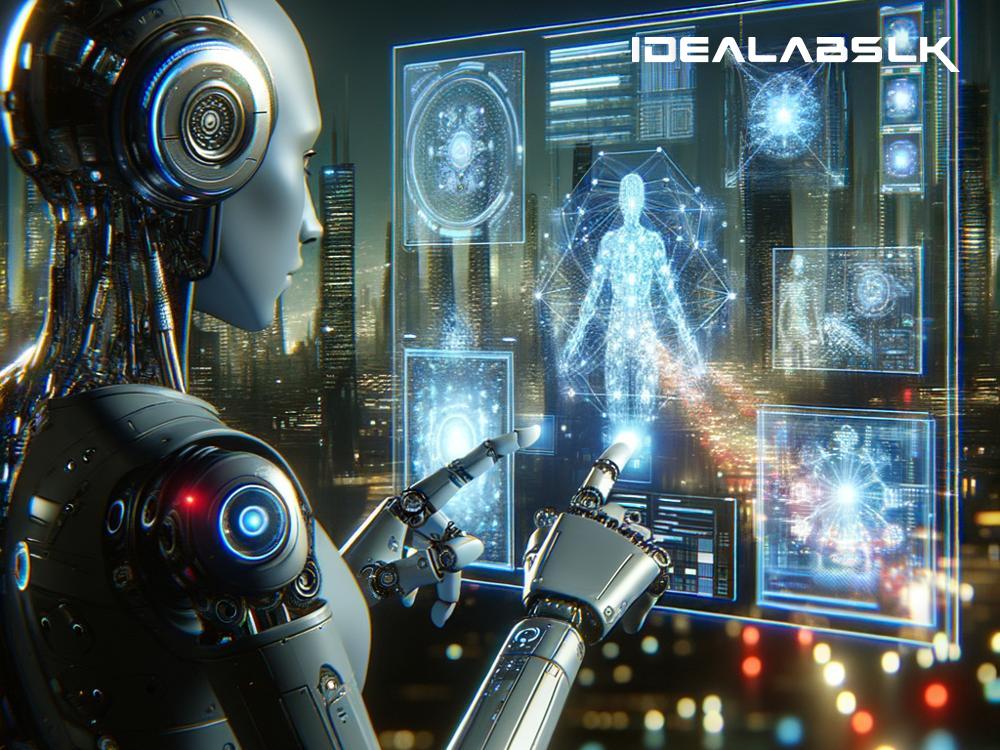How AI Will Revolutionize Interactive Voice Technology in Story-Driven Games Like Detroit: Become Human 2 in 2025
Interactive story-driven games, like the critically acclaimed Detroit: Become Human, have taken the gaming world by storm. These games offer players the chance to dive into rich, narrative worlds where their choices can lead to vastly different outcomes. As we edge closer to 2025, artificial intelligence (AI) is set to revolutionize the way we experience interactive voice technology in games like Detroit: Become Human 2. But how exactly will this unfold? Let’s explore.
A New Era of Voice Interaction
First up, imagine playing a game where every character can understand and react to your voice in a deeply personal way. That's where AI comes into the picture, making NPCs (non-playable characters) smarter and more responsive. These characters won’t just follow a script; they’ll interact with you in ways that are unique to your playthrough, thanks to advanced AI processing.
Seamless Conversations
One of the current limitations in interactive story games is the sometimes awkward and stilted conversations, where players select from a list of pre-defined responses. By 2025, advancements in natural language processing will enable you to speak your choices out loud, and the game's characters will understand and respond as if they're having a real conversation with you. The AI will analyze your tone, choice of words, and even the emotions behind your speech to deliver a response that feels incredibly genuine.
Emotional Intelligence
Beyond understanding words, AI in games like Detroit: Become Human 2 will have emotional intelligence. This means characters will pick up on the player's emotional state through their voice. If you sound stressed, characters may offer comfort or react nervously, adding an unprecedented layer of depth to gameplay. This emotional AI will make every playthrough intensely personal, as the game adapts not just to the decisions you make but to how you feel about them.
Adaptive Storytelling
The power of AI will bring about adaptive storytelling, where the story isn't just branching but dynamic. Instead of choosing from A, B, or C paths, your conversations and interactions will organically shape the story. AI will weave your voice inputs, emotional tone, and decisions into the narrative fabric of the game, creating a story that feels more alive and responsive than anything we've seen before.
Realistic World Interaction
In Detroit: Become Human 2, AI will also transform how we interact with the game world itself. Imagine talking to an in-game AI-controlled assistant that can execute tasks, provide information, or even tell you a joke, all powered by your voice commands. This level of interaction will make the game world feel more real and lived-in, enhancing immersion.
Breaking Language Barriers
AI advancements by 2025 will greatly improve translation and language models, making games like Detroit: Become Human 2 accessible in multiple languages right out of the gate. This means you can play the game in your native language and still experience high-quality voice acting and interaction, all thanks to AI-driven voice technology.
Accessibility
AI-driven voice technology will also open new doors for players with disabilities. Voice controls enhanced by AI can provide an intuitive and seamless way for everyone to engage with story-driven games, ensuring that more people can experience the thrill of making pivotal decisions in a game’s narrative.
Challenges and Considerations
While the promise of AI revolutionizing interactive voice technology in games is exciting, it's not without its challenges. Issues such as privacy concerns, the uncanny valley effect (where characters seem almost, but not quite, human), and the sheer computational power required are all hurdles that developers will need to overcome.
Looking Ahead
The integration of AI in story-driven games is poised to transform the gaming experience. By 2025, players can expect to engage with games like Detroit: Become Human 2 in ways that are more personal, immersive, and emotionally charged than ever before. The line between player and game will blur, creating narratives that are not only played but lived.
AI in gaming is not just about making games smarter; it's about making them more human. As we step into this new era of interactive voice technology, we're not just seeing the next chapter of gaming; we're experiencing the future of storytelling.

